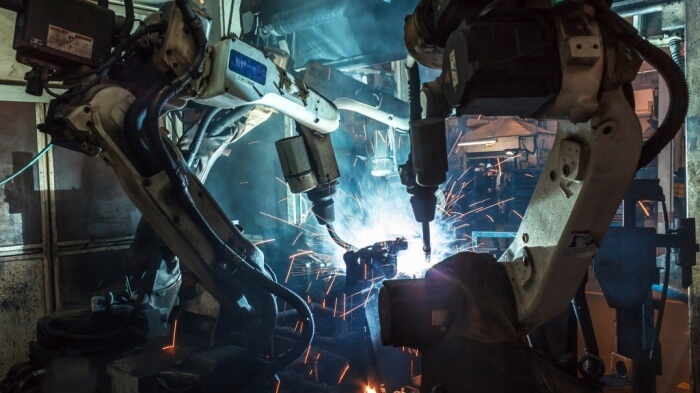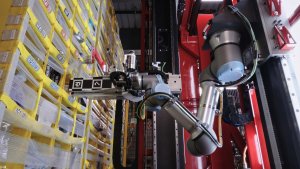Can Robotics Drive Business Success In Post-Brexit Britain?
Britain is low in the league table for investment in robotics. What needs to happen now?

The UK has a proud history of digital innovation, regularly putting itself at the forefront of invention and emerging developments. Strengths in manufacturing, research and technology have all provided a key competitive advantage against global rivals.
However, one area the UK has not driven is robotic investment, despite it being essential to increased productivity and return on investment (ROI).
In fact, recent research reveals that in 2015, US robotics investment reached $86 billion – approximately 62 times that of the UK. Germany, Japan and South Korea also devoted more money to robotics than the UK, despite it contributing as much as 10 per cent of the total GDP growth, over the last 22 years.
With technology getting more sophisticated, and job roles continuing to change, can a robo-revolution drive businesses towards success in post-Brexit Britain?
Invest in infrastructure
Recent research from Deloitte revealed Brexit to be the top concern for CFOs, with the majority believing the business environment will worsen after the UK leaves the EU.
With businesses questioning whether growth will be a possibility, meticulous planning, detailed temperature checks and stricter budgets have all been considered. Because of this, businesses need to ensure they are bolstering their investments in the right areas, having confidence that what they are putting money into now will turn a profit down the line.
Just as robotics has demonstrated benefits on the manufacturing floor, it can also add significant value to the back office. Robotics of business processes now has the power to make an impact across the whole business.
Allocating repetitive, rules-based manual tasks to robots means that day-to-day mundane but costly work can be eliminated, and humans can focus efforts higher up the food chain. It also means employees are adding real, personal value to creative tasks, continuing business processes but improving the experience.
As a result, back office processes become more efficient, productivity is increased, and human error is eliminated, meaning time, attention and resource can be focused where it will have greater business impact.
For businesses with high expansion ambitions, process robotics also brings ease to scalability, with the ability to adapt swiftly and comply naturally. The best automation systems available are those that embody standardisation and control, applying the same procedures and practices to tasks day in, and day out.
Rather than blindly mimic the role of a human employee, robotics can programme set interactions and acclimatise based on the situation at hand, without additional training or costs.
Robots do not want your job
Despite much discussion around the loss of jobs in relation to robotics and AI, a review of recent economic studies suggests there to be a positive relationship between robotics and employment.
Currently, the UK has only 33 robots per every 10,000 employees operating across the general industry – a similar per cent compared to other countries. Robotic automation is increasing the total number of jobs available, but it is also changing them. The increased level of automation being enforced across the workplace highlights a need to rethink how we approach certain skillsets.
As mundane, back-office tasks become automated, the human workforce becomes more valued across the business, as it is focusing on higher-level activities. Freeing up staff from repetitive jobs allows them to add real value to more strategic responsibilities, in which a greater deal of communication and understanding are involved.
In order to remain competitive and profitable, businesses should be planning a strategy around maximum efficiency for the tasks, rather than simply swapping human effort for machine effort.
A shift in mind-set
Businesses are aware of the benefits exploiting various big data tools and platforms has on process innovation, yet robotics is often overlooked as part of this. Robotics creates streams of data and is essentially an extension of efficiencies already in place. However, for robotics and automation to truly benefit businesses, a shift in corporate mind-set is necessary.
The investment into enterprise process robotics can add great value, especially in times of pressure where the need to achieve both growth and profitability are top of the to-do list. That being said, the current gap between understanding and implementation of these technologies is far too vast, with many organisations still seeing them merely as a direct replacement for human employment. This is a limited view and fails to capitalise on the real opportunities to differentiate.
As we watch Brexit unfold over the next few months, and robotics firmly take their place in the headlines, businesses would be wise to weigh up the benefits. Robotics have landed and will no doubt play a role in the future of the workforce. Like all other business tools, they just need to be applied in the correct way.
Neil Kinson is chief of staff at Redwood Software.
Thanks for signing up to Minutehack alerts.
Brilliant editorials heading your way soon.
Okay, Thanks!




